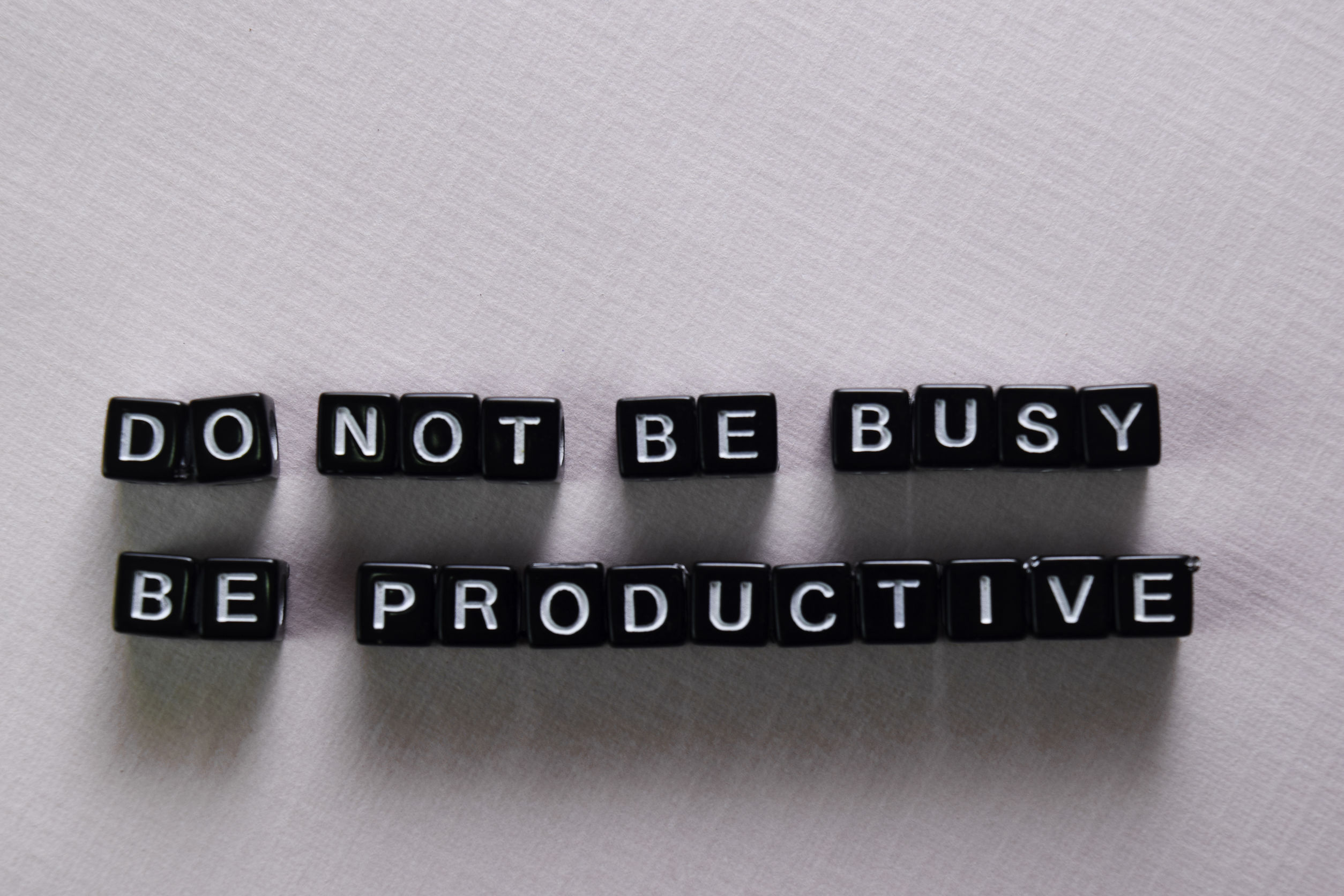9 ways to bolster your daily productivity and efficiency
Focus on one goal at a time, cultivate “deep work,” and prioritize empathetic listening.

Have you ever wondered why some people are more productive than others?
It boils down to your habits.
In fact, it’s been found that about 40 percent of people’s daily activities are performed each day in almost the same situations. Sometimes, that can be beneficial. Other times that can work against you.
Jumpstart your daily productivity by cultivating these nine healthy habits:
1. Don’t smash “snooze.”
What’s your first instinct when the alarm goes off in the morning? It shouldn’t involve the “snooze” button.
According to Dr. Reena Mehra, Director of Sleep Disorders Research at Cleveland Clinic, this prevents our bodies from getting that much-needed restorative sleep. “Much of the latter part of our sleep cycle is comprised of REM sleep, or dream sleep, which is a restorative sleep state,” explains Dr. Mehra. “And so, if you’re hitting the snooze button, then you’re disrupting that REM sleep or dream sleep.”
If you rise without hitting snooze, you’ll have more energy and stamina throughout the day. More importantly, you’ll be less stressed, more creative, and process complex information more efficiently.
2. Focus on just one goal.
Multitasking leads only to stress. The same can be said of trying to juggle multiple goals at once.
Instead, focus on one objective at a time. Slice larger projects into smaller, more manageable tasks, and set realistic, achievable goals for each workday.
3. Start off calm.
When you do get out of bed, start your day off on the right foot. How? By having a calm and peaceful morning.
The first way to achieve this is by waking up early enough so that you aren’t literally run out the door. You should have enough time to embark on a morning routine.
“I often suggest my clients begin their day with a morning meditation or self-affirming exercise,” says Shelby Castile, a licensed therapist. You could also set a positive intention for the day or repeating a mantra, such as “I choose happiness.”
Benjamin Spall, the co-founder of My Morning Routine, suggests that you also use “waking up as your cue to get out of bed and start doing some light stretching.”
“Or you can use waking up as your cue to grab a book from your bedside table and read 10 pages before popping on the kettle and starting breakfast,” adds Spall. Personally, I also write in a gratitude journal and review my calendar to know what to expect for the rest of the day.
4. Cultivate deep work.
Deep work is defined by Cal Newport as “the ability to focus without distraction on a cognitively demanding task.” In other words, these are your most demanding and important tasks. As such, they require 100% of your attention.
Of course, this is a challenge for most of us. We first have to identify what constitutes deep work. After that, we must block out time for this work.
To accomplish this, Newport recommends that you take the following steps:
- Schedule deep work. In your calendar, block out the appropriate time for deep work. Ideally, this should be when you’re at peak productivity.
- Don’t be as accessible. Since you don’t want to get distracted during this time, turn off your phone. Or, at the very least, mute notifications. If you have an office, close your door. If not, put on a pair of headphones.
- Know your work habits. Hunker down in an environment that’s suits your preferred methods of work.
- Keep a scoreboard. Record your deep intervals. And conduct a weekly review of your progress.
Deep work can be taxing, so you must refill your energy tank. Newport writes that you can achieve this by being lazy and embracing boredom. For example, instead of getting sucked into your smartphone during a break, stare out the window and let your mind wander.
5. Build pyramids.
“Batching” entails grouping similar activities together, such as checking your inbox at set intervals instead of throughout the day.
“Building pyramids” is a related tactic that involves starting your day with an easy task. Once you’re warmed up, jump into your main goal of the day. And, finally, end your day on a high note, such as organizing your workspace or evaluating your to-do list.
6. Listen intently.
The cornerstone of any relationship is listening to what the other person has to say. That means giving them all of your attention, asking questions and remembering key information. Empathetic listening fosters trust, improves communication and collaboration, and doing it well can be a boon for your career.
7. Sharpen your ax.
“Give me six hours to chop down a tree, and I will spend the first four sharpening the ax.”
Although that quote is often misattributed to Abraham Lincoln, the principle of preparation remains.
You can sharpen your “ax” by consistently improving your skillset, learning new information, trying new things, and always being prepared to handle the next crisis.
8. Be a quitter.
It’s probably been drilled into your head that quitting is bad. Sometimes it is. For example, walking out on your team when they need you most.
But quitting can also be virtuous. It could be delegating an ancillary task that eats up time or unsubscribing from emails to cut clutter. It might also mean rejecting new projects, cancelling meetings or even “firing” a bad client.
When it comes to things that drain and strain your productivity, be a quitter.
9. Establish a “shutdown” ritual.
“Shutdown” rituals are tasks that help you transition from work mode to personal time. To end your day (and prepare for the next), try:
- Closing loops, such as responding to an important email.
- Sketching out what your next workday should consist of.
- Shutting down your computer.
- Reflecting on your accomplishments for the day.
- Setting out tomorrow’s wardrobe.
John Rampton is the founder Calendar and Due.






